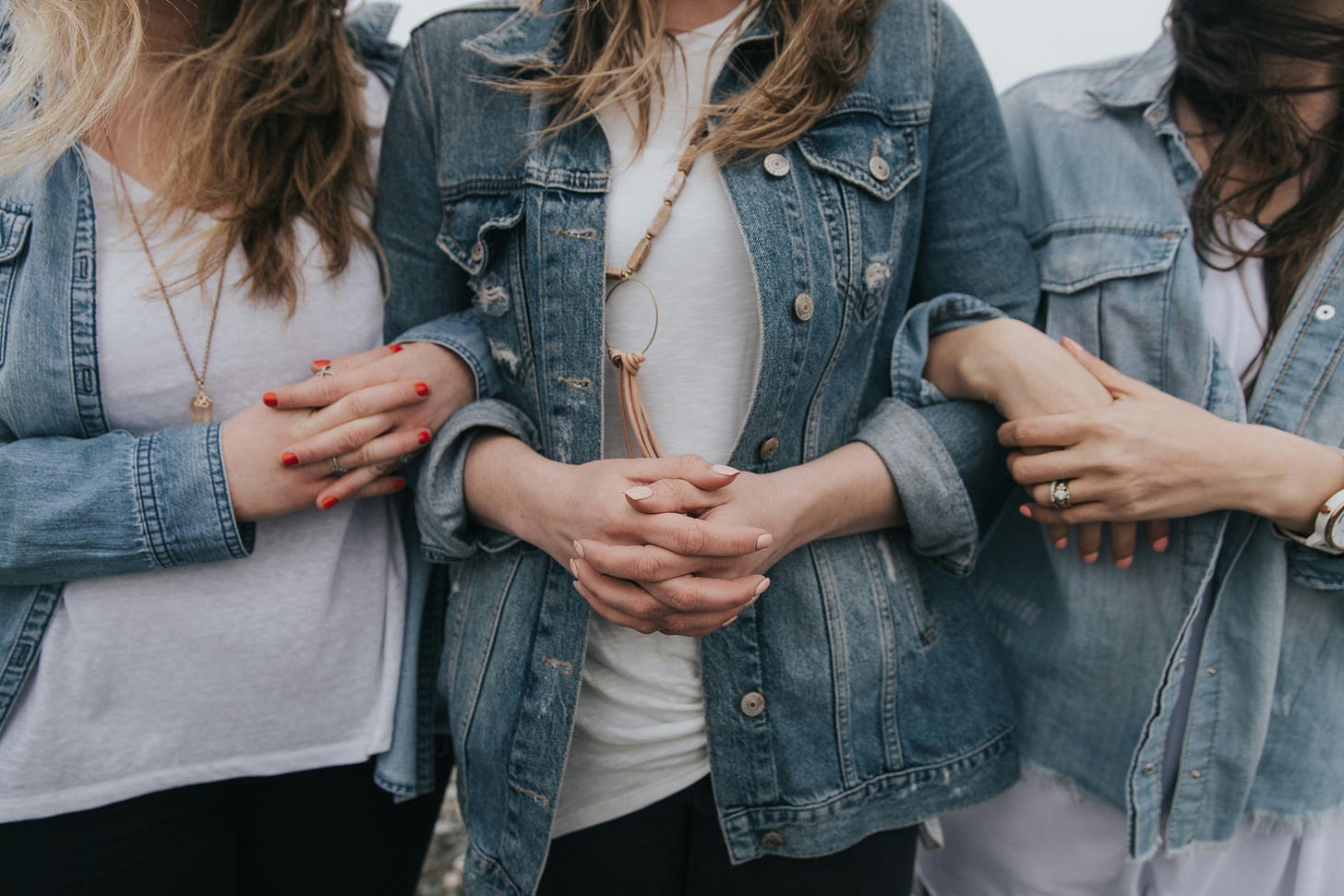Survivors' Voices: My Experience as a Woman
I was choosing the topic for this month on Saturday, March 8, which happens to be International Woman’s Day. More than three quarters of the In Spirit and Truth Survivors’ Voices Panel is made up of women, so I thought this would be a good time to ask them how they see their identity as a woman intersecting with their experience of abuse. Here’s what some of them had to say:
I was abused by religious sisters while an adult member of an all-female religious community. There were so many aspects of my identity as a woman that were scrutinized and attacked while I was in the community: the way I ate, dressed, and did my hair, the way I walked, spoke, and prayed, the way my body looked, my weight, what menstrual products I used, my sexual history and my sexuality in general, how I interacted with and cared for priests… I was accused of purposely choosing habits/postulant dresses that “showed off my butt” to attract the attention of the men who attended prayers. I was forced to wear a child-sized bathing suit to a public pool. I was yelled at for putting on a “little girl act” when being criticized. I was told that I looked like a child and that the next time my parents saw me, I needed to "look like a woman" (with the implied threat that I wouldn’t be allowed to see them again until I did). There was nothing that was off-limits. People often don’t believe that women – particularly religious women – can sexually abuse other women, but they can. And they do. It might look different in a convent than in other contexts, but the reality – and the underlying shame and trauma – is the same.
In a conversation about one of my abusers, I told my spiritual director (a priest) that I felt stuck in a decision. No matter what I chose, I knew I would feel guilty. He didn’t understand how I could feel guilt both ways, especially considering the abuse. Months later, I shared that conversation with my mom. She replied, “Of course he didn’t get it. He’s not a woman. You’re Catholic and a woman, that’s two strikes against you for lifelong anxiety and shame. It will only get worse when you’re a mother.” She wasn’t wrong, but she doesn’t understand the particular burden of my survivor’s guilt, either. That guilt isn’t just about choices - it’s about existing at all, about taking up space in a Church that seems to prefer that I sit down and shut up.
I've seen a lot of people link the abuse crisis directly to "the homosexual infiltration in the Church" and even say things along the lines of "well, at least it wasn't a man" and "it's more forgivable if it was a woman, at least that's natural." It doesn't seem to enter people's heads that the abusive grooming, power imbalance, and emotional manipulation that male victim/survivors suffer happens to women too.
I was speaking to a priest about the situation with the diocese. He jumped in with, "If I were you, I would tell them...." With a litany of strongly worded comments that he would tell them off with. I looked at him. Finally, I said, "It must be really something to have so much privilege. But I'm a member of the laity, not a priest like you. So those words wouldn't be tolerated. And I am a woman, not a man, so if I say those things, I would be called a bitch. And if they are feeling particularly mean that day, they will call me a "crazy bitch." He stopped and thought about what I was saying. It killed him to have to admit what I was saying was true.
I believe that as a woman survivor, it comes more naturally for us to share our feelings, which is likely why more women than men typically attend survivor group meetings. It’s been my experience that the more we share our feelings, and hear others share theirs, the faster we can move through the healing process. I also believe that being a woman survivor typically creates more sympathy or compassion from non-survivors, since girl victims are seen as more physically vulnerable or fragile (even though boys suffer just as much as girls). Girls in our society are perceived as unable to fight back, while boys might be seen as more able to stand up to their abusers – physically, mentally and/or emotionally. People don’t necessarily understand that the deep shame and self-blame that plagues ALL survivors isn’t gender specific. In fact, it is my opinion that men survivors are probably dealing with even MORE shame and self-blame because society seems to saddle them with more “shoulds” and “could haves.” Outsiders don’t seem to realize that in the throes of an assault, logic goes out the window, and we react instinctively from a place of survival. Most of us, male and female, just freeze or dissociate when facing predators, who are almost always stronger, bigger, and more powerful (especially spiritually).
A lot of the shame and guilt about my abuse was related to it being same-sex abuse perpetrated by a woman. The perpetrator exploited the questioning of my sexuality and made me think it was love. She drew me in by exploiting the complicated relationship with my mother and desire for a positive female influence. She used “nurturing” as a cover for her immoral behavior.
Thank you for listening to these experiences and perspectives with an open heart. I will have more reflections on this theme next week.
Peace,
Sara
PS: If you have experienced any form of abuse by a Catholic leader and would like to share your own thoughts on this or future topics, I would be grateful to include your perspective. You can find information about joining the Survivors’ Voices Panel here: An Invitation for Survivors.



